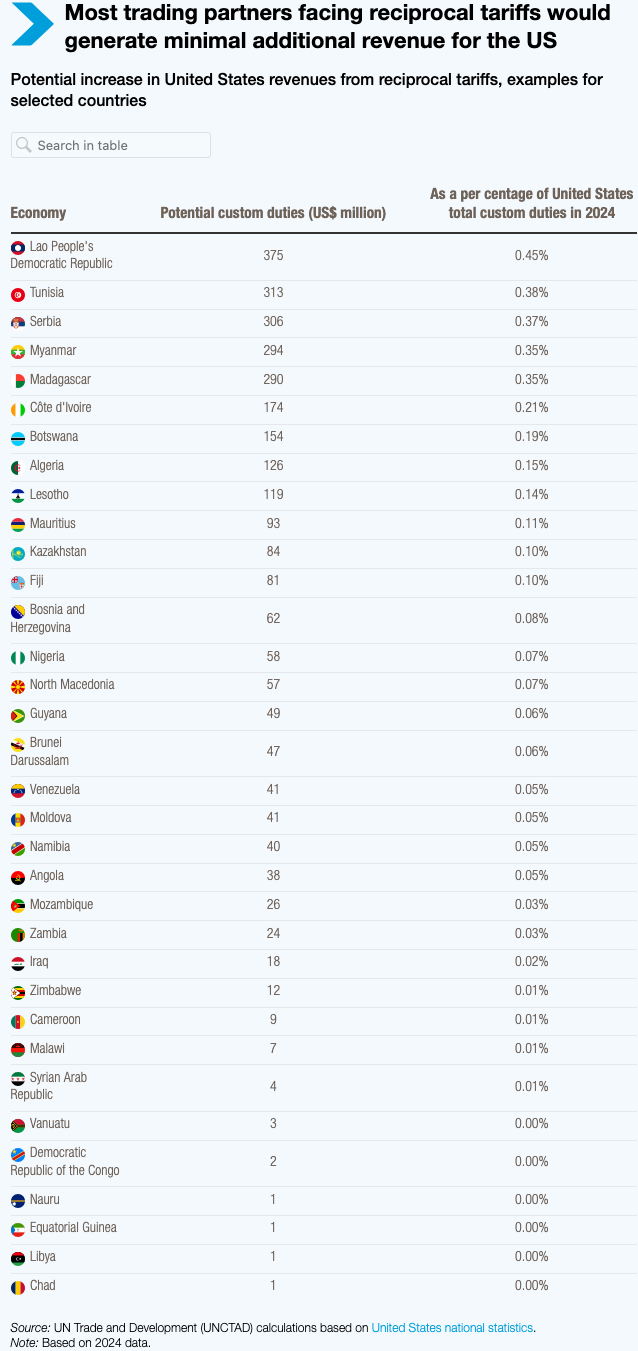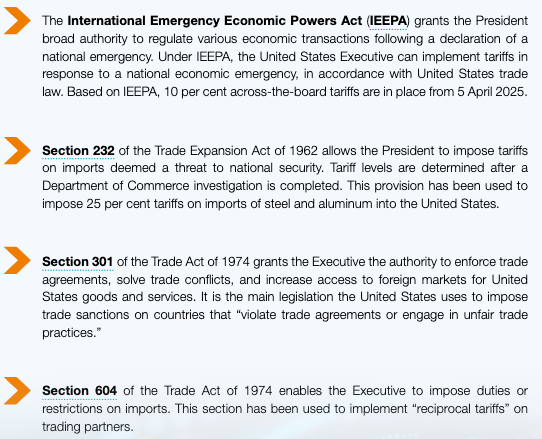
UNCTAD urges tariff exemption for vulnerable economies
Geneva: UN Trade and Development (UNCTAD) has called for exempting small and vulnerable economies from reciprocal tariffs proposed by the United States, warning that such measures could devastate developing nations without significantly reducing the US trade deficit. The tariffs, paused for 90 days, target 57 trading partners and range from 11% for Cameroon to 50% for Lesotho, disproportionately impacting least developed countries.
UNCTAD’s report, “Escalating tariffs: The impact on small and vulnerable economies,” released today, highlights that 28 of the 57 affected countries contribute less than 0.1% to the US trade deficit. Imposing tariffs on these nations, including 11 least developed countries, would generate minimal revenue for the US while severely limiting their export capabilities. For 36 countries, the tariffs would add less than 1% to current US tariff revenues, even if import volumes remain unchanged.
The report notes that tariffs on countries exporting mineral products, like Zambia and the Democratic Republic of Congo, or oil, such as Guyana and Nigeria, would yield negligible revenue due to exemptions for oil and the limited value of mineral exports. These measures could hinder efforts by these nations to diversify and add value to their exports, further weakening their economies.
UNCTAD also warns of impacts on US consumers. Tariffs on agricultural commodities not produced in the US, such as $150 million in vanilla from Madagascar, $800 million in cocoa from Côte d’Ivoire, and $200 million in cocoa from Ghana in 2024, could raise prices due to limited substitutes. Higher tariffs may increase costs for US households while offering little fiscal benefit.
The proposed tariffs aim to balance bilateral merchandise trade deficits but risk escalating global trade tensions. UNCTAD emphasizes that small economies, with low purchasing power and structurally weak systems, offer limited export markets for the US. Trade concessions from these nations would reduce their own revenues without meaningfully benefiting the US economy.
Reciprocal tariffs – United States legal basis
Historically, a rules-based global trading system has lowered tariffs, with two-thirds of world trade in 2023 occurring tariff-free. However, recent tariff hikes by major economies threaten this progress, particularly for developing countries already facing low growth and uncertainty. UNCTAD’s report underscores that reciprocal tariffs would disproportionately harm vulnerable economies, offering minimal impact on US trade deficits or revenue collection.
Timeline of tariffs applied to United States imports from China
Using the International Emergency Economic Powers Act (IEEPA), the United States imposed tariffs on China, which added to those in place since 2018 under Section 301.
The 90-day pause provides an opportunity to reconsider the policy. UNCTAD advocates for protecting the poorest nations to maintain global trade equity and prevent economic harm to those least equipped to absorb it.
– global bihari bureau








